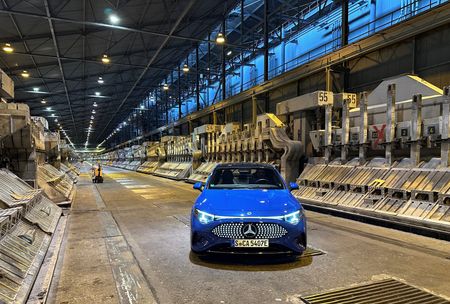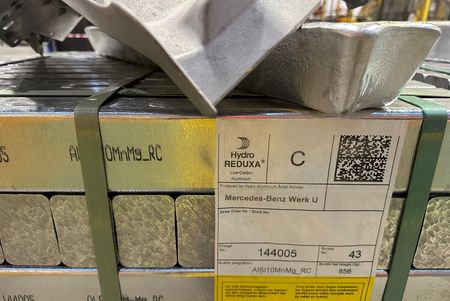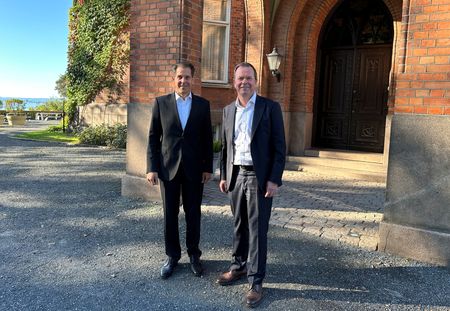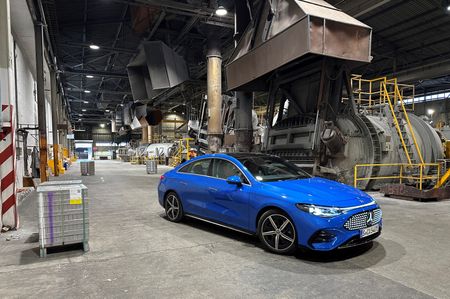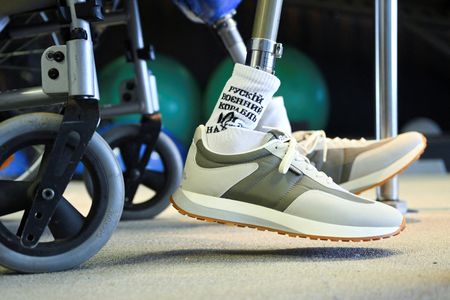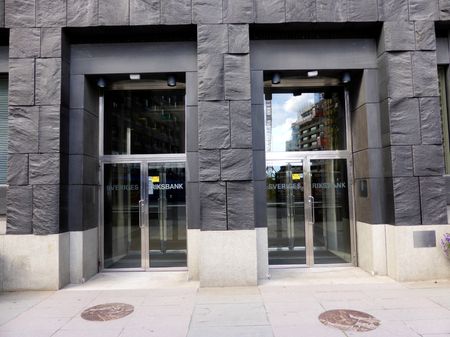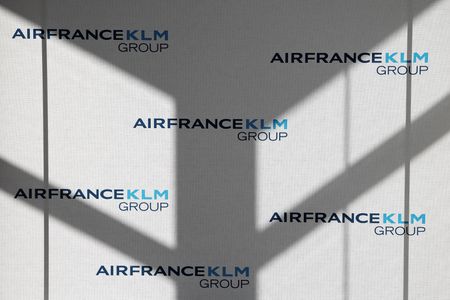By Nora Buli
AARDAL, Norway (Reuters) -Aluminium made with renewable power and from recycling is helping luxury automaker Mercedes-Benz cut CO2 emissions in the production of its new line of electric vehicles, part of a wider effort to decarbonise operations, executives told Reuters.
Mercedes uses the low-carbon aluminium, developed in partnership with Norwegian metals producer Norsk Hydro, to make its new electric CLA model.
The collaboration is an example of how makers of premium consumer products may pay extra for raw materials in return for a more environmentally friendly profile, executives of both companies said.
“There are of course extra costs from using an especially low-carbon steel or aluminium,” said Gunnar Guthenke, vice president of Mercedes-Benz’ procurement and supplier quality.
“Sustainability and desirable products, such as the ones we produce, simply go hand in hand,” he said.
GROWING DEMAND FOR LOW-CARBON PRODUCTS
The companies declined to provide a breakdown of costs, but said the new CLA was made with 40% less CO2 emissions than its non-electric predecessor.
While decarbonising value chains can be costly, partnerships offered a way to share the burden, so it is not borne by manufacturers or customers alone, Norsk Hydro CEO Eivind Kallevik said.
The metal’s price premium is also not deterring buyers, even in a more difficult market for aluminium seen in recent years marked by low economic growth, he added.
“We are seeing a growing demand for low-carbon products,” Kallevik said.
The metal made for Mercedes at Norsk Hydro’s Aardal on Norway’s coast causes just 3 kg (6.6 pounds) of CO2 emissions per kilogram of aluminium compared with a global average of 16.7 kg, the companies said.
It includes one quarter of aluminium scrap in the mix, further reducing the volume of primary metal from the energy-intensive smelter.
Mercedes in the past faced criticism over an advertising campaign highlighting sustainability at a time when it was facing a lawsuit from a climate group in Germany over its environmental impact. The suit was dropped by a German court in 2022.
(Reporting by Nora Buli, editing by Terje Solsvik and Lincoln Feast)

